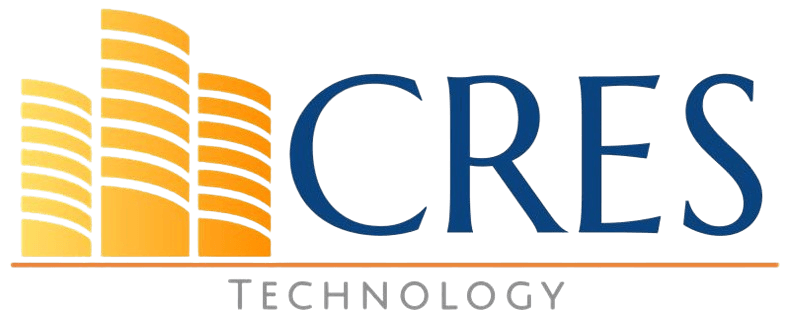
The commercial real estate (CRE) sector is standing at the crossroads of innovation and transformation, thanks to the rapid evolution of PropTech. This wave of technological advancement is reshaping how properties are built, managed, and experienced, driving efficiency, sustainability, and tenant satisfaction to new heights.
As we go through 2025, the pace of change is only accelerating. From smart buildings to blockchain, these innovations are not just trends—they are the future of CRE. Staying ahead of these developments is critical for businesses to remain competitive in an industry that is becoming increasingly tech-driven. Let’s dive into the world of PropTech and explore the key trends shaping the future of commercial real estate.
What is PropTech and Why Does It Matter?
PropTech, short for Properties Technology, refers to the integration of technology into real estate processes. It encompasses a wide range of tools and platforms designed to improve efficiency, transparency, and user experience in the real estate sector.
Traditionally, commercial real estate has relied on manual processes and legacy systems. PropTech is disrupting this status quo by introducing automation, AI, data-driven insights, and digital platforms that streamline operations. From property management to tenant engagement, technology is reshaping every aspect of the industry.
The demand for PropTech solutions has surged in the wake of the COVID-19 pandemic. Businesses now prioritize flexibility, remote capabilities, and sustainability, making tech-driven solutions more essential than ever. In short, PropTech is not just a convenience but a necessity for staying relevant in today’s market.
Top 5 Tech Trends Transforming Commercial Real Estate
1. Smart Building Technology
Smart building technology is revolutionizing how commercial properties operate. At its core are IoT-enabled devices that automate and optimize building functions, such as lighting, HVAC systems, and energy usage. These devices not only improve efficiency but also reduce operational costs.
Smart sensors are another game-changer. They provide real-time data on occupancy and resource usage, allowing property managers to make informed decisions. For instance, sensors can identify underutilized spaces, enabling adjustments that save energy and improve tenant comfort.
The impact of smart building technology extends beyond cost savings. Tenants benefit from a seamless, tech-enabled experience, which enhances satisfaction and retention. In a world where convenience is king, smart buildings are setting a new standard for commercial real estate.
2. Artificial Intelligence and Data Analytics

Artificial intelligence (AI) and data analytics are empowering CRE professionals to make smarter, faster decisions. AI-driven tools can improve operations and productivity, predict maintenance needs, reduce downtime, and repair costs. For property managers, this means more efficient operations.
Data analytics is also transforming market analysis and investment strategies. By analyzing vast amounts of data, AI can uncover trends, forecast market conditions, and identify lucrative opportunities. This level of insight was once unimaginable but is now a reality thanks to PropTech.
Additionally, AI-powered platforms are enhancing tenant experiences by offering personalized services. From tailored leasing options to customized amenities, AI is helping CRE professionals create spaces that truly meet tenant needs.
3. Virtual and Augmented Reality (VR/AR)
Virtual and augmented reality are redefining how stakeholders interact with commercial properties. Virtual property tours, for example, allow potential tenants or buyers to explore spaces remotely. This not only saves time but also expands the reach of property marketing efforts.
Augmented reality takes it a step further by enabling space planning and interior design visualization. Imagine walking through an empty office and using AR to see how furniture and layouts would look in real time. This technology is making decision-making faster, easier, and more informed.
By reducing the need for physical site visits and enhancing visualization, VR and AR are streamlining the leasing and sales process while improving stakeholder confidence.
4. Blockchain and Smart Contracts
Blockchain technology is bringing transparency and efficiency to property transactions. By creating a secure, decentralized ledger, blockchain eliminates the need for intermediaries, reducing transaction times and costs.
Smart contracts, powered by blockchain, are automating lease agreements and other legal processes. These contracts execute automatically when predefined conditions are met, ensuring accuracy and reducing the risk of disputes.
Additionally, blockchain’s ability to prevent fraud and enhance transparency is building trust among stakeholders. In an industry where trust is paramount, blockchain is proving to be a valuable tool for the future of CRE.
5. Sustainability and Green Tech
Sustainability is no longer optional—it’s a business imperative. PropTech is playing a pivotal role in helping CRE meet environmental, social, and governance (ESG) goals. From energy-efficient building designs to renewable energy integration, technology is driving the shift toward greener properties.
PropTech solutions are also enabling property managers to track and reduce carbon footprints. For example, smart energy management systems can monitor usage and suggest optimizations to reduce waste.
By embracing green tech, CRE professionals are not only contributing to a healthier planet but also appealing to environmentally conscious tenants and investors. It’s a win-win for business and the environment.
Challenges in Adopting PropTech
While the benefits of PropTech are undeniable, adoption comes with its challenges:
- High Initial Costs: Implementing new technologies requires significant upfront investment, which can be a barrier for some organizations.
- Integration with Legacy Systems: Many CRE firms rely on outdated systems that are difficult to integrate with modern PropTech solutions.
- Data Security and Privacy: Protecting sensitive tenant and property data is a top concern, especially as cyber threats continue to evolve.
- Resistance to Change: Some stakeholders may be skeptical of new technologies, requiring education and change management to overcome.
Future Outlook for PropTech in Commercial Real Estate
The future of PropTech in CRE is bright, with several exciting developments on the horizon:
- Increased adoption of AI and automation to streamline property management and operations.
- The rise of fully digital property marketplaces, making transactions faster and more accessible.
- A greater focus on tenant-centric technologies, such as personalized apps and smart amenities.
- Continued advancements in sustainability-focused PropTech solutions are driving progress toward net-zero goals.
As these trends evolve, the CRE industry will become more efficient, transparent, and tenant-friendly than ever before.
Conclusion
PropTech is not just a trend; it’s a transformative force that is reshaping the commercial real estate landscape. By embracing these technologies, CRE professionals can unlock new levels of efficiency, sustainability, and tenant satisfaction. As we go through 2025, the road is paved with opportunities for innovation and growth that are powered by the breakthrougs in AI. Those who adapt will thrive in this disruptive environment..
How we can help:
It’s a Microsoft 365 based real estate productivity solution that consolidates your data, documents, business processes, and business intelligence.

Your real estate organization may be facing challenges such as data and process silos, as well as a lack of system integration. The absence of centralized visibility can result in low productivity.
CRES Real Estate solution easily consolidates data and documents from various systems into one central location. It integrates with any property management systems such as MRI, Yardi, VTS, or Real Page. As your company expands, so will the challenges of productivity, but with CRES Software Solution, you can overcome these challenges and remove silos.
About Irfan Butt

CRES Technology – Founder and CEO
A strategic leader with over twenty years of progressive experience in Business Administration, Finance, Product Development, and Project Management. Irfan has a proven track record in a broad range of industries including hospitality, real estate, banking, finance, and management consulting.





